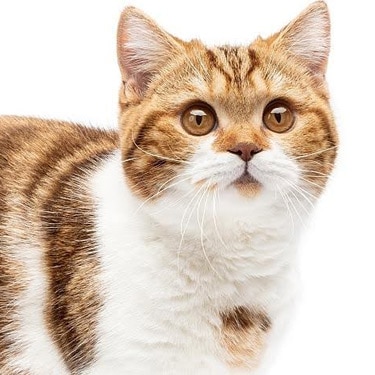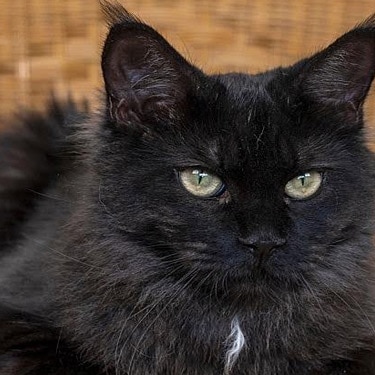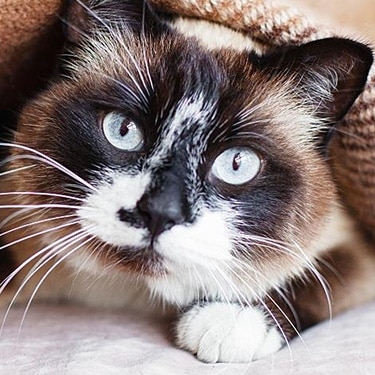Urinary health for cats
Urinary health for cats
Urinary issues in cats are often lifelong conditions that require lifelong care. Many of these issues can be triggered by stress or various environmental factors, driving a wedge between cats and their pet parents. Fortunately, urinary cat food can play an important role in managing these issues, helping to reduce the risk of future urinary accidents and get cats back to their litter box.
As part of a comprehensive care plan including creating a soothing home environment, cat food for urinary health can help cats get back to their day-to-day lives so they can rejoin the family.
Understanding a misunderstood condition
Because urinating outside the litter box is commonly mistaken for a behavioral problem rather than a medical condition, this and other urinary issues are among some of the most misunderstood health conditions in cats. Sadly, these issues can sometimes put a strain on the relationship between even the most loving cats and their pet parents. That’s why it’s important to be able to recognize the signs of your cat’s urinary issues so you can make more informed decisions about their urinary health.
Spot the signs of your cat’s urinary issues
As stressful as your cat’s urinary issues can be for you, they are often just as painful for cats. Because cats tend to suffer in silence with urinary problems, they may struggle for some time before anyone notices and diagnoses the condition. Here are a few key signs you should look out for if you suspect your cat may be suffering from a urinary disorder.
Accidents in the house
If your adult cat is having frequent accidents or urinating in unusual places, this could be a sign of several common urinary conditions that often are manageable with the help of your vet.
Yowling when urinating
If your cat is straining to urinate or is making pained, uncomfortable noises in their litter box, check with your vet immediately. These could be signs of feline idiopathic cystitis (FIC), bladder stones or even urethral plugs.
Blood in urine
Schedule an appointment with your vet if you discover blood in your cat’s litter box or urine. A cat peeing blood is a serious sign and could be related to FIC, bladder stones, a urethral plug or a variety of other causes and should be evaluated by a veterinarian.
Frequent urination
More time in the litter box than usual with the absence of urine or only small drops of urine should be assessed by your veterinarian immediately. This could be a sign of a urethral obstruction, which is a medical emergency.
Is your cat experiencing urinary issues?
Stress may be a factor. Take our quiz to find out if stress could be affecting your cat.
FIC and iLUTS
The most common urinary disorder in cats is feline idiopathic cystitis (FIC), a diagnosis that is typically made after other possible conditions are eliminated. While the cause of FIC is unknown, stress is thought to be a significant factor.
And because FIC signs — such as urinating outside the litter box — frequently come back throughout a cat’s life, managing this condition requires lifelong care.
Stones
Struvite and calcium oxalate are common stone types in the urinary tract that can cause numerous and painful ailments for your cat.
For cats prone to stones, vets may recommend increased water intake and therapeutic nutrition to dissolve the current stone and help reduce the likelihood of future stone formation.
Plugs
The urethra is a tube that carries urine from the bladder and out of the body. When struvite crystals in your cat’s urine combine with mucus, they can form a urethral plug.
If your cat is yowling or making frequent trips to the litter box or only urinating small amounts, a urethral obstruction may be the cause. Contact your vet immediately as this condition is a medical emergency and could be fatal if not treated.
Managing your cat’s urinary issues
When it comes to urinary conditions, there is no one-size-fits-all solution. That’s why it’s important to work closely with your veterinarian to determine the best course of action for your cat’s unique needs.
In general, cats diagnosed with urinary disorders benefit from a comprehensive approach that may consist of everything from urinary cat food to medication and even surgery, if needed. But remember, even with the best treatment, some cats may have recurring signs or periodic episodes.
Nutrition
For most feline urinary conditions, nutrition is the standard of care, as it can help to reduce the risk of future episodes. Urinary health cat food will moderate their intake of certain minerals like calcium, phosphorous and magnesium that can cause crystals to form in the urine. Some foods are even formulated to help pets prone to stress so as not to trigger their urinary problem.
Environmental enrichment
It’s not uncommon for environmental stressors to trigger urinary episodes. You can help soothe a stressed-out feline friend by creating a quiet home environment, providing your pet with a scratching post and vertical climbing space and even simply giving them extra love and affection.
Medication
Depending on your cat’s particular needs, a veterinarian may prescribe medication to help your pet through an acute episode. Typically, this medication is intended to help your pet manage any pain associated with their condition while you get them on the right track with proper nutrition and environmental enrichment.
References:
1Lekcharoensuk C, Osborne CA, Lulich JP. Epidemiologic study of risk factors for lower urinary tract diseases in cats. J Am Vet Med Assoc. 2001;218(9):1429-1435.
















